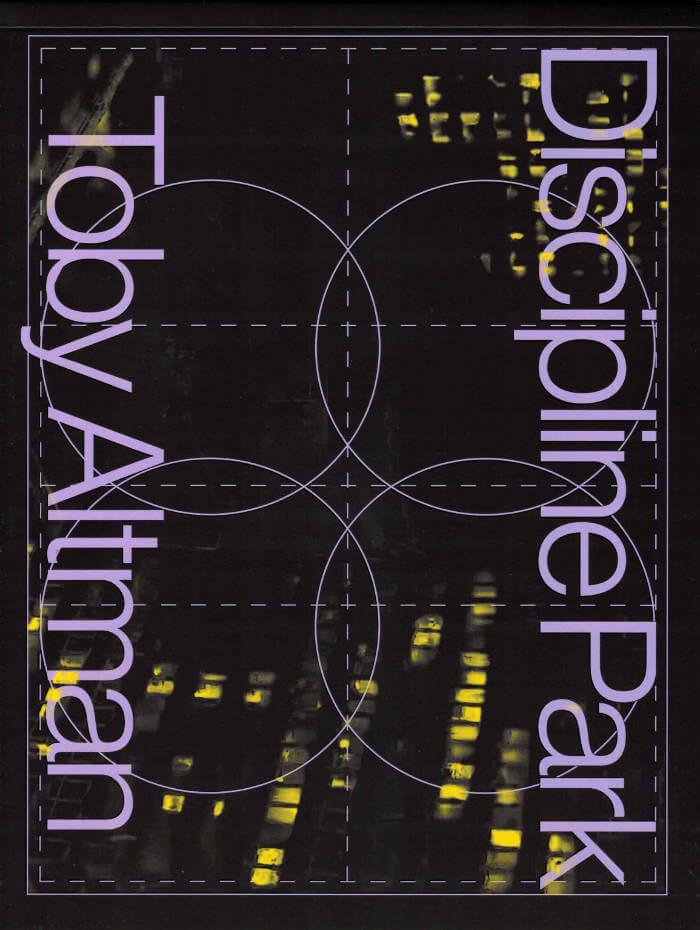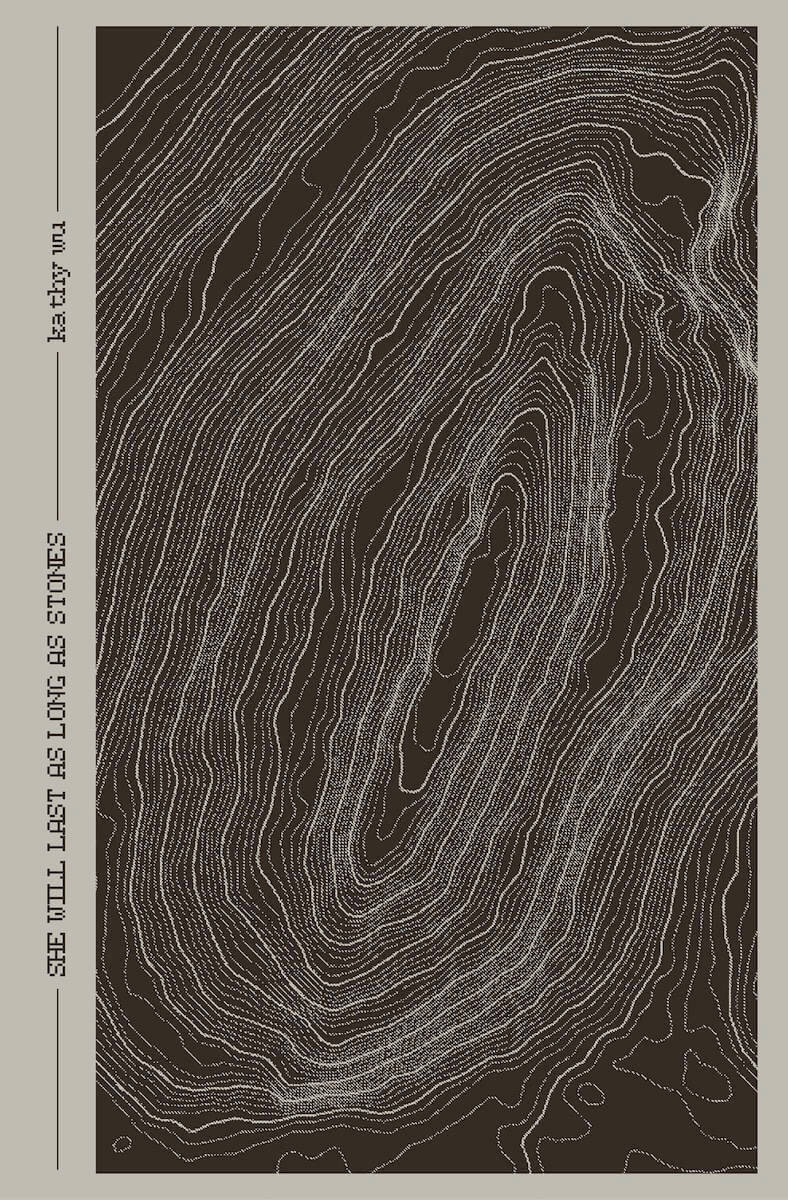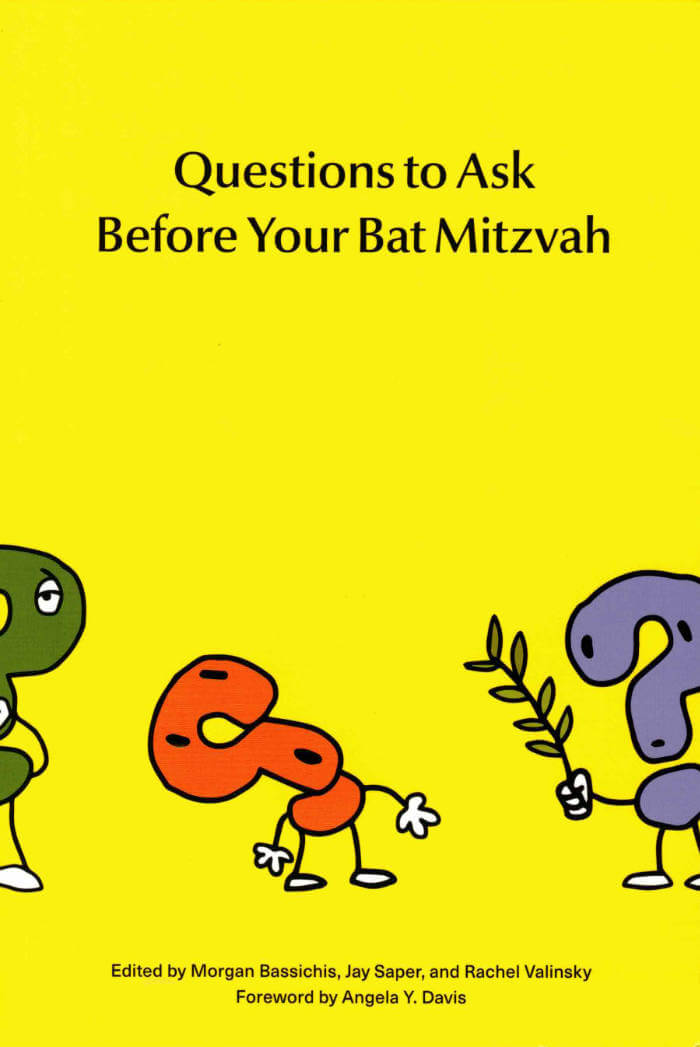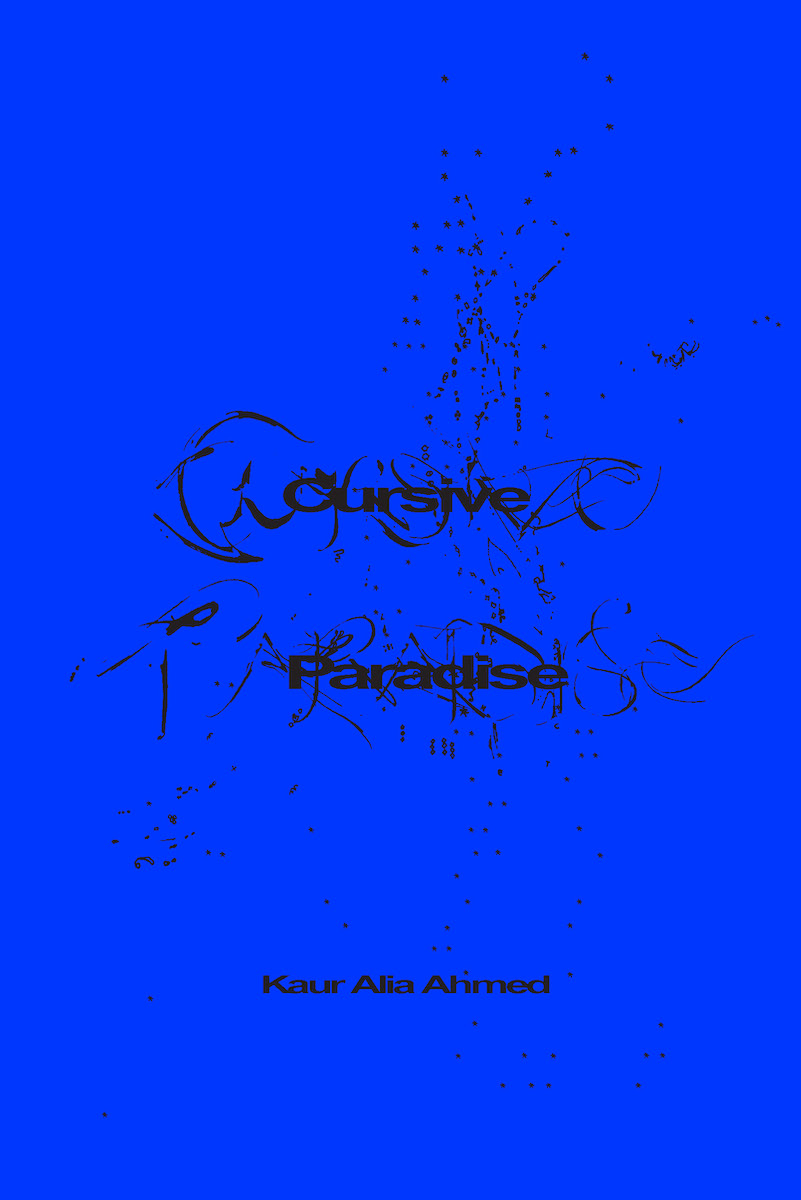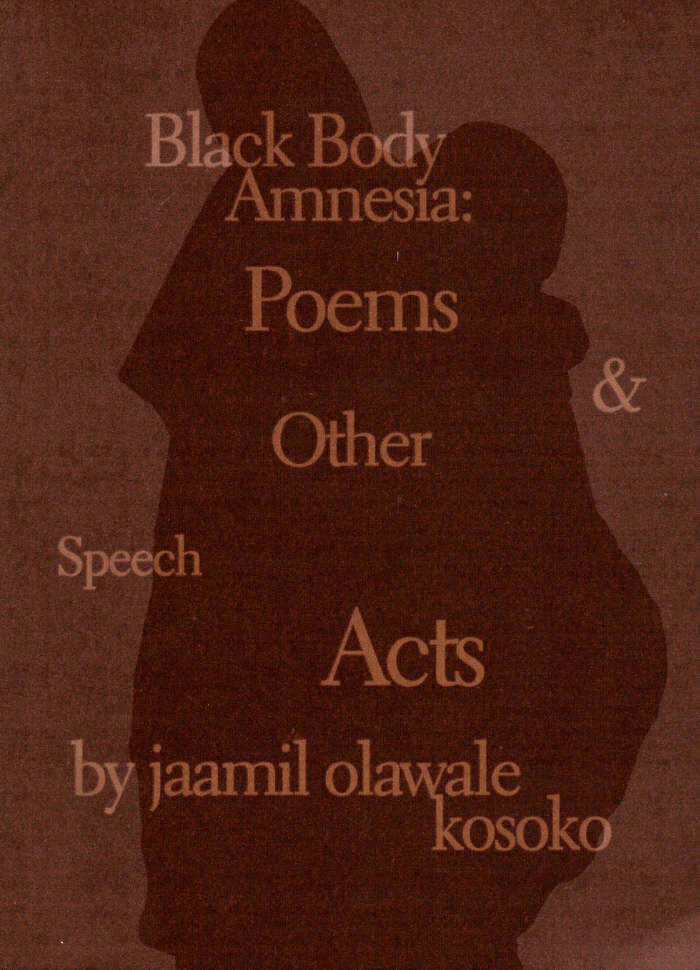
Black Body Amnesia : Poems and Other Speech Acts
Blending poetry and memoir, conversation and performance theory, Black Body Amnesia: Poems and Other Speech Acts enlivens a personal archive of visual and verbal offerings written and organized by poet, performance artist, educator, and curator Jaamil Olawale Kosoko. Inspired by Audre Lorde’s concept of biomythography, Kosoko mixes personal history, biography, and mythology to tell a complex narrative rooted in a queer, Black, self-defined, and feminist imagination.
This collection of intertextual performance acts captures the ephemeral data often lost or edited out of Kosoko’s live performances. Developed alongside their ongoing, multi-media live art project, American Chameleon, and elaborating on the artist’s unique practice of Socio-Choreological Mapping as a means to explore queer theories of the body and its "hydraulics of grief," this book offers critical-creative frames to consider the fluid identities and lifeworlds embedded inside contemporary Black America.
With an introduction by editor Dahlia (Dixon) Li, and contributions by Sara Jane Bailes, mayfield brooks, Brenda Dixon-Gottschild, Ashley Ferro-Murray, Nadine George-Graves, Nile Harris, Ima Iduozee, Lisa Jarrett, Bill T. Jones, Jennifer Kidwell, Malkia Okech, Ada M. Patterson, Tracy K. Smith, and Jillian Steinhauer.

